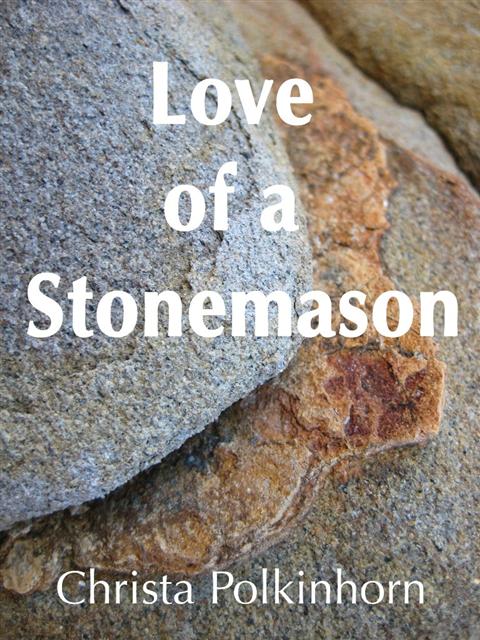 I was in therapy the other day (aka web-surfing for mindless crap) and ran across a quote that sent off a flare in my mind. For the past couple of days I have been reading Christa Polkinhorn’s debut novel “Love of a Stonemason” and try as I might, I couldn’t peg a witty or otherwise enchanting way of wording its message, and then I ran into this…
I was in therapy the other day (aka web-surfing for mindless crap) and ran across a quote that sent off a flare in my mind. For the past couple of days I have been reading Christa Polkinhorn’s debut novel “Love of a Stonemason” and try as I might, I couldn’t peg a witty or otherwise enchanting way of wording its message, and then I ran into this…
“I don’t pretend to know what love is for everyone, but I can tell you what it is for me; love is knowing all about someone, and still wanting to be with them more than any other person, love is trusting them enough to tell them everything about yourself, including the things you might be ashamed of, love is feeling comfortable and safe with someone, but still getting weak knees when they walk into a room and smile at you.”
This is exactly what Polkinhorn’s novel is all about, the struggle to overcome your demons and let love flood in.
Karla is an artist, but like most magicians with a canvas her talents come at a cost. At the age of 5 Karla lost her mother, and with it went her peace. Andreas is also an artist, but instead of painting he carves tombstones. Both have issues, both are looking for closure, and in a ironic turn of fate (or an inability to look where they are going) they are about to meet, but will their instant connection be enough to keep them together? With depression, and anger waiting in the wings Karla and Andreas are forced to make a decision… face their pasts together, or live their hells alone.
A few days ago I was dreading having to write this review. I was 20% in and bored (which is never a good sign) but luckily my inability to toss a book (regardless of how crappy) kicked in and I pushed through. I’m very glad I didn’t give up. While I undoubtedly enjoyed the first few chapters of this novel, my patience began to wear thin when the focus of the novel shifted. What I thought was supposed to be a (in the most basic term) “love story” suddenly turned into a long drawn out battle with daddy issues. Thankfully, Polkinhorn’s ability to creatively capture the culture, and beauty of her settings added brief moments of reprieve from (an otherwise) excessively wordy section, and enticed the reader to keep moving. After her stint in Peru however, things very quickly got back on track (well… as on track as you can be for throwing depression, abandonment, resentment and infidelity at a couple) and before I knew it I was sucked back in. The writing quality as a whole was wonderful, and Polkinhorn’s ability to “write art” was a nice little treat when it was all said in done. Her characters (though written to have a slew of flaws) were nicely detailed, and allowed the reader to indulge in their complexities.
All in all… not bad for a book I initially disliked.
One word of warning however, if this sounds like the book for you, please set aside the appropriate amount of time to read it. It is not an easy read, and it is long… so take your time and be prepared to learn some hard lessons.
Happy reading my fellow Kindle-ites and remember: If you plan on writing secret love letters to people, don’t leave them on the table for everyone to see… that just screams FAIR GAME!
For a complete book description click image
[Rating:4/5]






Thanks, Ms KindleObsessed for your patience and a sensitive review. And believe it or not, when I sent the manuscript to be edited (to Scott Nicholson, wonderful author and savior of my debut!) it was 100 pages longer. With the help of his sharp pen and occasional sarcastic remarks, I managed to cut it to its present 400 page size. I received my literary education in the days when Tolstoy’s War and Peace and other lengthy novels were the norm. What was I thinking? The literary taste of modern readers and, particularly, their attention span have changed. Yes, it is a book to be enjoyed at a leisurely pace. But I promise, my next novel won’t be as long. LOL.
Thanks again, Misty.
Wordy is not always bad… so don’t be discouraged by that.
Thanks for the opportunity to read your work. 🙂
Misty